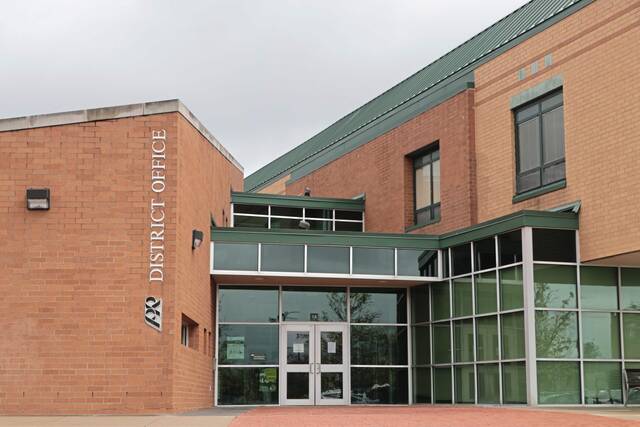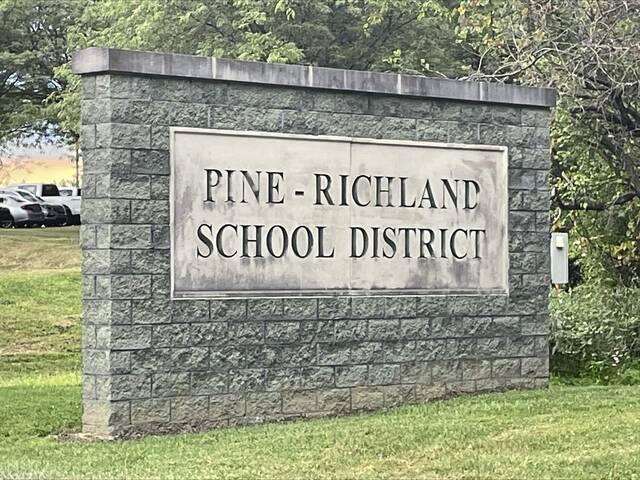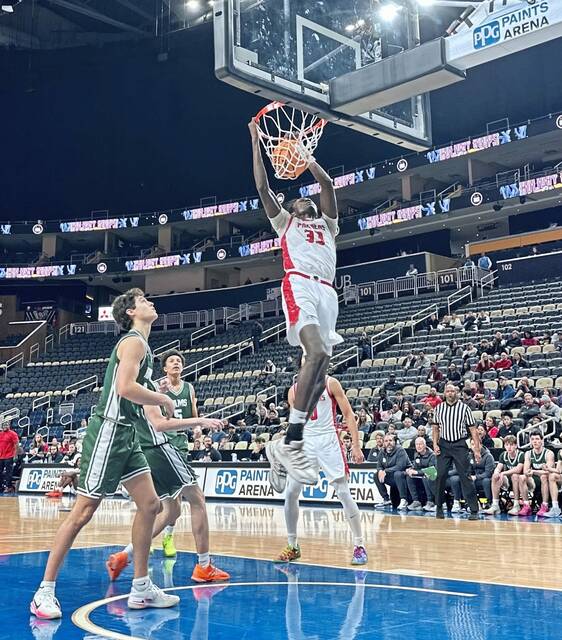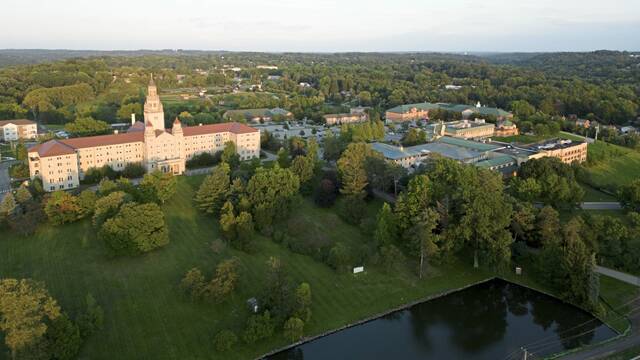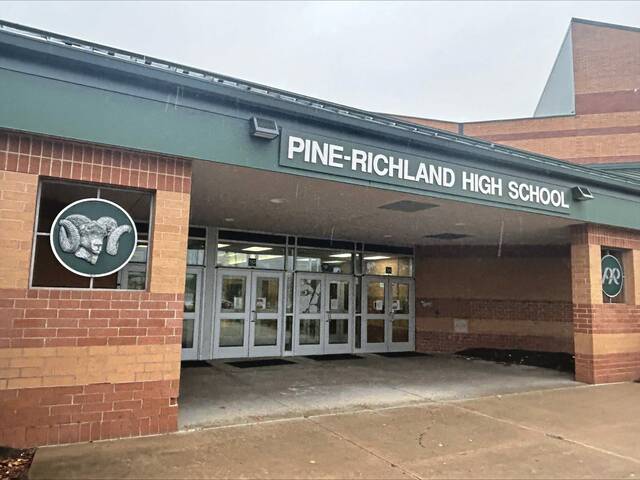With the support of the majority of the school board, the Pine-Richland School District is moving forward with a 2025-26 budget with no property tax increase despite the superintendent urging that an increase is necessary.
The board voted 6-3 at its May 12 meeting to approve the proposed $115.6 million spending plan. Voting in favor were Philip Morrissette, Lisa Hillman, Marc Casciani, Christina Brussalis, Leslie Miller and Michael Wiethorn; voting against were Joseph Cassidy, Ashley Fortier and Amy Terchick.
The property tax rate would remain unchanged at 19.5867 mills. For a home at Pine’s $335,500 median assessed value, the annual school tax bill would remain $6,571; a home at Richland’s median $168,600 assessed value would remain $3,302.
With no tax increase, the district’s revenue is about $107.4 million. The district would use $6.9 million from its fund balance for capital improvements, and about $1.2 million to cover its operating deficit.
The deficit for the 2025-26 school year started at $3.1 million, Superintendent Brian Miller said.
The administration recommended a 2.1% property tax increase, slightly more than half of the 4% maximum the district is allowed by its state-imposed inflation limit.
With that increase, the district’s revenue would be about $108.8 million. There would be no operating deficit and instead a surplus of about $137,500, and $6.8 million would be used for capital improvements.
A 2.1% increase would take the millage rate to 19.998 mills. For homes at the median assessed values, that adds $138 to the annual school tax bill in Pine, and $70 to the annual bill in Richland.
With no tax increase in the 2025-26 school year, Miller told the board that the district’s projected deficits would increase to $4.9 million for the 2026-27 school year, $8.9 million for 2027-28 and $12.6 million for 208-29.
Those deficits include the reduction of 10.5 employees through attrition. The budget also includes revenue from increased student activity and parking fees, higher football ticket prices and changes to facility use fees.
Miller urged against the district using its reserves to cover the deficit. He noted that a 4% property tax increase for 2026-27 would still leave a $2.5 million deficit, and the district would use all of its fund balance in three years.
With the district’s inflation limit expected to be 3.7%, Miller said staff cuts and larger class sizes would be needed to address that deficit.
“This is a structural issue best addressed through structural action,” Miller said.
Pine-Richland has not had a property tax increase for eight years. The last increase, 1.97% in 2017-18, was imposed to pay for capital expenditures, not the district’s operating costs.
Morrissette said a tax increase should be a last resort. He was skeptical of the administration’s projections of future costs, saying they were increasing by more than the district’s historical trends.
For 2025-26, Miller said the district’s costs increased by 3.62%. The projected deficits reflect annual spending increases from 3.5% to 4.2%.
Terchick asked where board members not taking the administration’s recommendation where they were getting their information from.
“Everything is getting more expensive and we know that. This appears just to be a political stance of saying zero, no new taxes, end of discussion. That’s not good for kids,” she said. “The reason that we live here, that most of us have moved here and lived here and raised our families here is for what our kids are offered. I’m not willing to cut that, to have to have 22, 23 kids in a first grade classroom or get rid of the band or get rid of athletics.
“I don’t want to pay more taxes. I’m an empty nester. I don’t have any kids in the district,” Terchick said. “I also know if we tank the district my house value is going to go down, and I think we need to be mindful of that as well.”
After running with a surplus put into its capital fund, Morrisette said there is talk of increasing the tax rate with a 1% deficit.
“I still think there are opportunities this year to look at the general fund,” he said. “Then talking about the future years, let’s really get inside of that and understand are we making the best possible projections to go forward with that? When you look at the big picture, it’s really hard to swallow, it’s a very dark and bleak picture. I want to be able to go into the details. We have to have that conversation continue.”
Wiethorn said he would not always oppose a tax increase, but questioned doing that as the first reaction when the district has $38 million in reserve.
“The taxpayers have contributed to that accumulation of excess funds,” he said. “This is the first year that we’ve had a deficit on operating expenses.”
The district expects to spend $20 million in capital expenses such as roofs, HVAC, flooring and asphalt in the next three years, Miller said.
“If we need to bolster our reserves by taking on additional debt, it will increase our operational expense through paying down that debt and it massively increases the cost to the community,” Miller said. “The interest payments on debt for the money that we’re talking is significant, the community feels that.”
Casciani said raising the millage is not a knee-jerk reaction, and that a small increase is needed.
“Part of the challenge is that we are asked to make decisions without all of the facts. This would be much easier decision and conversation if we were very short sighted. Many districts are. Many districts don’t do as good a job planning for the future as we do. That also makes this a bit harder of a conversation to have,” he said.
Casciani said it’s future years that worry him.
“This conversation at this time next year or even sooner about the type of millage increase we’ll need to balance the budget is going to be exponentially harder than it is right now,” he said.
Miller said a maximum 4% property tax increase was preferred for 2025-26, but his administration recommended 2.1% to find common ground.
“I don’t believe it would be in the best interest of our district or our community to only look at 25-26,” he said. “It’s understanding what’s coming and trying to position the district structurally to preserve excellence.”
The board will vote on the final budget on June 9.


